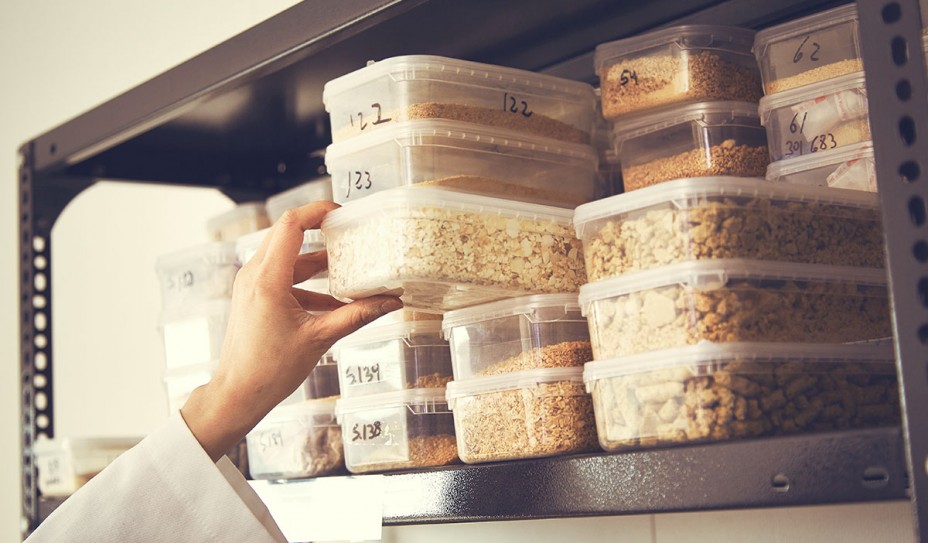14th December 2020
Trial results offer hope for life after zinc
Published in Pig World magazine, UK
As the pig industry prepares for the zinc oxide ban, Primary Diets reveals the results of trials that may bring some relief.

The latest commercial trial results from Primary Diets provide good news for producers as the industry prepares for the zinc oxide ban. Piglets weaned on to Primary’s Ultra XP diets containing either pharmacological levels of zinc oxide (2,500ppm) or zinc incorporated at 150ppm have shown that in the first 14 days, pigs grew significantly better and ate more feed when offered the lower zinc diets (Table 1). Although feed conversion was poorer without the higher levels of zinc, driven by higher feed intakes, the results from this part of the large-scale trial with a top UK producer are very encouraging, according to Dr Kayleigh Almond, Primary Diets technical manager.
These pigs will be followed until approximately 40kg to determine any follow-on effects of zinc removal.
Dr Almond said “Over the last couple of years we have been developing our Ultra XP range at the University of Leeds, where in 2016 we saw 23% worse average daily gain (ADG) when pharmacological levels of zinc were removed, to now consistently achieving 8% better ADG in 2018.
“Knowing that all farms are different, with different challenges and management, we were keen to start trialling on our customers’ units to check that these findings can be replicated. At this purpose-built commercial trial farm, we fed the high/low zinc XP diets for two weeks before going onto a standard ABN grower ration and the results provide great hope that the UK pig industry should be more than ready to meet the looming 2022 deadline.”
The company is also co-sponsoring a PhD student at the University of Leeds to understand the effect of zinc on the pig microbiome and performance and hopefully provide more detailed insight and ideas on how this can be replicated via other methods. “While both the University and commercial farm trials have produced impressive results, we recognise that differences between farms in terms of health status, facilities and management practices mean every farm will respond differently”, Dr Almond said.
“While some will just require a limited adjustment of feeding regimes, others will need significant changes in biosecurity, management and vet interventions as well as nutrition programmes.”

Preliminary trial results from a large UK pig producer
|
|
Zinc |
No Zinc |
| Start wight (kg) | 6.20 | 5.92 |
| Day 14 Weight (kg) | 8.83b | 9.13a |
| ADG d0-14 (g/day) | 197b | 219a |
| ADFI d0-14 (g/day) | 217b | 251a |
| FCR d0-14 | 1.10b | 1.15a |
| % Removals | 3.26 | 2.63 |
| Faecal Score | 1.54 | 1.56 |
| Cleanliness Score | 1.04 | 1.09 |
Different superscript letters represent
significant differences between treatments (P<0.05)
How will the zinc ban be implemented in the UK?
In June 2017, the European Commission confirmed an EU-wide ban on the veterinary use of zinc oxide at medicinal doses.
Zinc has been used for a long time in pig feed to help address problems with post-weaning diarrhoea, but was banned largely on the back of fears over its environmental impact. After lobbying from organisations like the NPA, which argued that a ban would have a significant impact on pig production and piglet health, member states were given until 2022 before the products must be withdrawn from the market.
Brexit has raised questions about how the ban will be implemented in the UK, but NPA senior policy adviser Georgina Crayford said no indications had been received so far from Defra or the Veterinary Medicines Directorate (VMD) as to whether they would stick to the EU timetable.
Two zinc oxide products had their licences renewed by the VMD in November 2018, which might suggest that it would be open to either extending the transition period or not implementing the ban at all in the UK, Dr Crayford said.
So is the industry ready for the forthcoming ban?
Dr Crayford said there seems to be a wide range of experiences among pig producers, with some managing to successfully reduce zinc levels or remove it altogether from piglet diets, while others will undoubtedly be worse off both financially and in terms of piglet health unless a suitable alternative is found.
“The industry must continue to work on the assumption that zinc products will be banned from 2022 and make efforts to replace it, but NPA will continue to explore the possibility of retaining it beyond that date,” she said.